Review of Green Ray, The
Introduction
Eric Rohmer, writer and director of the Green Ray (a real `auteur`),is from that rich seam of self-established and intellectually gifted French Directors who started out life as a teacher initially but went on to become a writer. He was a founding editor of La Gazette du Cinema, and eventually became editor at Cahiers du Cinema which, as any self-respecting film student will tell you, became the intellectual`s choice for film critique. In common with other contributors (Jean-Luc Godard, François Truffaut amongst others) he became directly involved in the film making business and rose to prominence during the 1960`s as part of the so-called French New Wave.
`The Green Ray` kicks off in an extremely low-key way. It`s central character, the unassuming Delphine (Marie Riviere) is let down by friends literally days before she`s due to go on her summer vacation. In conversation with a variety of friends and acquaintances we learn that she is putting a brave face on a brooding depression. Tired and worn out by the drudgery of everyday Parisian life, and feeling alienated and lonely, we see the depression dip until a moving scene that sees her quietly crying on the steps of a French villa. Friends try to help but somehow make things worse with their predictable suggestions. There is a strange and pervading sense of isolation and cosmic helplessness. But before you reach for the stop button on the remote, it`s worth hanging on in there because patience is well rewarded.
A friend takes Delphine to Cherbourg but it does nothing to diminish the weeping. Another attempt to escape Paris by taking a trip to the Alps provides no relief either and despite the best efforts of a group of fellow travellers, Delphine remains totally alone. The highlight of the film is the time she then spends in Biarritz where, amongst the crowds on the beach, Delphine`s loneliness is magnified and unbearable. To further rub salt into the wounds we see Delphine cruelly contrasted to a likeable and fun loving Swede who is gregarious and outgoing. And just when you begin to share the sense of hopelessness and futility with Delphine, a meeting with a stranger at the train station on the way back to Paris offers new hope. The closing scenes are genuinely touching and the allegorical significance of the `Green Ray` adds a bittersweet poignancy to the movies conclusion.
The Direction is sparing to say the least. Shots are often left wide, with little detail or cutting. It`s noteworthy that most scenes are exteriors using mainly natural light. Composition and colour are un-startling and add to the `everyday life` documentary feel of the movie which I`m sure Rohmer would claim to be intentional. A cynic might suggest that these are all tell-tale signs of a budget production which may well have been the case.
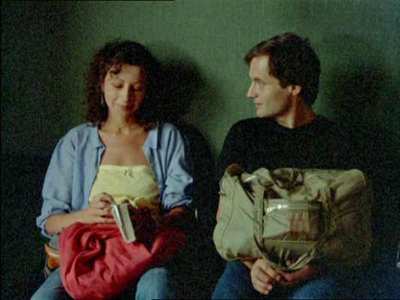
Video
4:3 Aspect Ratio. This is not a great quality print. Of course it`s difficult to know how much of the `washed out` colour is intentional and / or how much is down to poor transference and digitising. The film looks washed out and there is a lack of contrast that may frustrate some viewers. There is also a graininess that may be down to low-light, mis-matched stock at the outset, or a bad print. Or maybe it`s intentional. Whatever the case, it doesn`t really get in the way of the narrative.
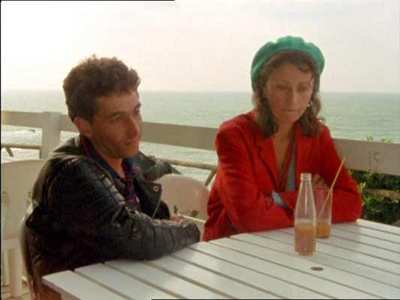
Audio
Dolby Digital sound. Due to the almost documentary style of the film, with little or no post-dubbing, you often get slightly `wide` sound where the boom is high out of shot and there is a consequential increase in the signal to noise ratio. You also get some `natural` sounds of Parisian life including passing traffic and sirens. This might also help account for the lack of shot changes (as a cut half way through the decay of a siren for example would demand considerable post-audio work and you get the sense that that wasn`t on the cards for this movie.) There is very little in the way of music, which is a hallmark of Rohmer`s movies, though what little there is repeats a four or five note refrain that becomes extremely evocative.
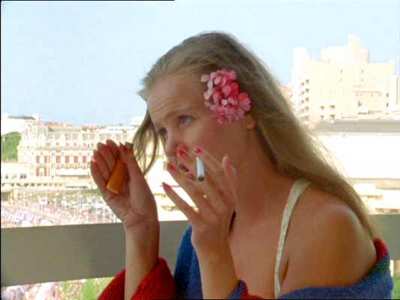
Features
Naturally, English subtitles are provided and these can be turned on or off. There`s also a trailer - without subtitles curiously. A real nicety here though is a rare radio interview with Eric Rohmer who was renowned for never giving TV interviews. This is presented with illustrative footage from several of his movies as he discusses his use of colour and music, focussing particularly on `The Green Ray`.
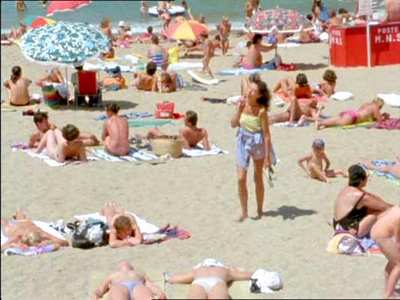
Conclusion
Described as one of a series of `Comedy Fables` it should be noted that there is nothing remotely funny about Rohmer`s `Le Rayon Vert`. It has a much more direct lineage with existential French fiction, like Sartre`s `Nausea`, than it does to the comedic magic of Jacques Tati. And frankly, it`s no adventure movie either. And whilst we`re on the subject of what this film isn`t, it`s worth noting that it`s not a sci-fi either despite the provocative `Green Ray` title.
What this film is though is a very gentle and tender portrayal of isolation and loneliness- and it explores the sense of alienation that comes from non-conformism and principled living. It provides a welcome antidote to the over-blown, over-budgeted, over-hyped and `over-here` Hollywood blockbusters that dominate the DVD racks. It`s a slow burn, but well worth the effort delivering a glowing payoff (literally), ending with a metaphoric ray of hope and purpose. Recommended viewing.
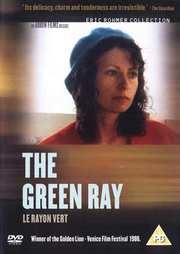
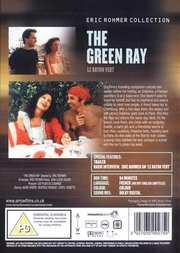




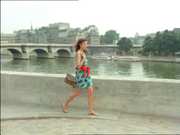
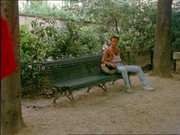

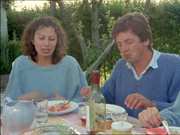





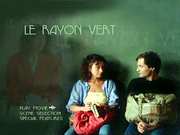
































Your Opinions and Comments
Be the first to post a comment!